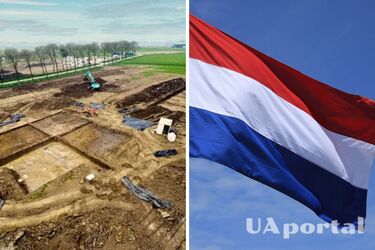Archaeologists unearth 4000-year-old "Dutch Stonehenge" (photo)

Dutch archaeologists have unearthed a religious site dating back about 4000 years in the city of Til. The discovery was called the "Dutch Stonehenge".
The ancient site includes a burial mound that served as a solar calendar. This was reported by The Guardian.
The mound contained the remains of about 60 men, women and children. It had several passages through which the sun shone directly on the longest and shortest days of the year.
Read also: Fragments of a scroll with a text from the Book of the Twelve Minor Prophets found in Israel
Studying the difference in the composition and colour of the clay, the scientists discovered three mounds a few miles from the banks of the Baal River.
The main mound is about 20 metres in diameter, and its passages are lined up to serve as a solar calendar. People used this calendar to determine important moments, including holidays and harvest days.

Scientists also discovered two smaller mounds. According to archaeologists, these three mounds have been used as burial sites for about 800 years.
Scientists also found one glass bead in the grave, which, after analysis, showed that it originated from Mesopotamia, modern Iraq. The bead may have been around for a long time before eventually making its way to the area around Til.
As a reminder, archaeologists in Peru found a 3,000-year-old mummy under a pile of rubbish. The researchers had to remove 7,000 kilograms of garbage to conduct detailed excavations.
If you want to get the latest news about the war and events in Ukraine, subscribe to our Telegram channel!
